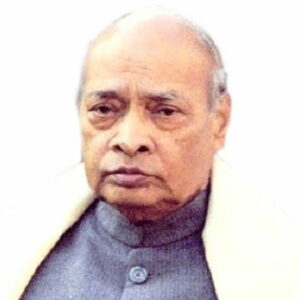P. V. Narasimha Rao was a politician from India who served as the country’s tenth Prime Minister. Several significant economic reforms were implemented during his administration, resulting in the abolition of the License Raj and the opening of the Indian economy to rapid economic development and growth. As a result, he is frequently dubbed the “Father of Indian Economic Reforms.” The abolition of the License Raj was a watershed moment in Indian economic history because it reversed the socialist policies pursued by successive Indian governments following independence and paved the way for India to participate actively in the globalization wave that was sweeping the world. He rescued India from economic collapse and set the stage for recovery and growth through his brilliant administration and unwavering commitment to the country’s development. Along with his visionary leadership, he is well-known for being the first Prime Minister from a non-Hindi-speaking region of south India. He was a complex individual who was also a scholar and an intellectual; he spoke 17 languages and was interested in a variety of subjects, including computer programming and literature.
Childhood & Adolescence
He was born on 28 June 1921 in a village in what is now Telangana’s Warangal District. At the age of three, he was adopted by P. Ranga Rao and Rukminiamma, both of whom came from agrarian families. Pamulaparti Venkata Narasimha Rao was his full name.
After completing his secondary education, he enrolled at Osmania University’s Arts college, where he earned a Bachelor’s degree. He continued his education at Hislop College, earning a Master’s degree in law.
Career of P. V. Narasimha Rao
The freedom struggle peaked in the 1940s, and Rao, a devout patriot, trained as a guerrilla fighter in order to revolt against the Nizam, who ruled Hyderabad at the time.
He fought a bloody war against the Nizam, risking his life in an attempt to evade the Nizam’s army. He was fighting in a forest on 15 August 1947, the day India gained independence.
He survived the war and became involved in politics following independence. From 1957 to 1977, he served in the Andhra Pradesh legislative assembly. He was a stalwart ally of Indira Gandhi.
He served in various ministerial positions in the Andhra Pradesh government from 1962 to 1973, including as Chief Minister from 1971 to 1973.
In 1977, he was elected to the Lok Sabha (lower house of parliament). He held a variety of positions in both Indira Gandhi’s and Rajiv Gandhi’s cabinets, including that of foreign minister (1980–84, 1988–89).
He intended to retire from politics, but the assassination of Congress President Rajiv Gandhi in 1991 compelled him to reconsider. Rao was elected as the Congress Party’s leader and became India’s Prime Minister following the 1991 general elections.
When he took over as Prime Minister, the Indian economy was in crisis, and he immediately began implementing progressive reforms. He sought to reduce the fiscal deficit through privatization of the public sector and increased infrastructure investment.
Manmohan Singh, a renowned economist, was appointed as Rao’s Finance Minister, assisting him in implementing the reforms. Under his administration, the SEBI Act of 1992 and the Security Laws (Amendment) were enacted.
Among Rao’s reforms were the opening of India’s equity markets to foreign institutional investors and the establishment of the National Stock Exchange in 1994 as a computer-based trading system.
Rao made significant achievements as Prime Minister and set the tone for the country’s rapid development. He reactivated the country’s nuclear security and ballistic missile programs, extended diplomatic outreach to Western Europe, the United States, and China, and neutralized the Kashmir separatist movement.
However, his tenure was marred by corruption allegations. He was charged with corruption and bribery in connection with an alleged vote-buying scheme dating all the way back to 1993, when Rao’s government faced a vote of no confidence.
The Congress Party was defeated in the 1996 general elections, and he resigned as Prime Minister in May 1996.
In 2000, a lower court convicted Rao of bribing Jharkhand Mukti Morcha (JMM) legislators in order to save his government in 1993 and sentenced him to three years in prison. Rao was granted bail and appealed the verdict to the Delhi High Court. He was acquitted of the charge by the Delhi High Court in 2002.
Significant Works
He is best remembered for implementing economic reforms during his tenure as Prime Minister. Along with Finance Minister Manmohan Singh, he introduced several measures, including the elimination of government regulations and red tape, the elimination of subsidies and fixed prices, and the privatization of state-run industries, all of which contributed to the revitalization of India’s economy.
Personal History and Legacies
He married Satyamma and together they had eight children—three sons and five daughters. In 1970, his wife died, leaving him a distraught widower for the remainder of his years.
He was a scholar who spoke seventeen languages and was passionate about literature. He was an avid reader and author of Telugu, Marathi, and Hindi fiction. He had also previously served as chairman of Andhra Pradesh’s Telugu Academy (1968–74).
On 9 December 2004, he suffered a heart attack and died 14 days later on 23 December 2004 at the age of 83.
Estimated Net Worth
PV is one of the wealthiest World Leaders and ranks high on the list of most popular World Leaders. PV Narasimha Rao’s net worth is estimated to be around $1.5 million, based on our analysis of Wikipedia, Forbes, and Business Insider.


